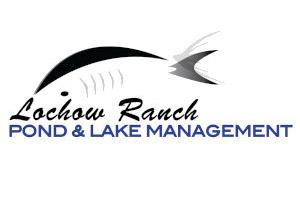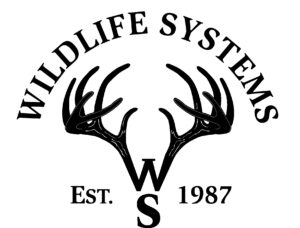*Quebec, Canada* Funded MSc and PhD opportunities in Ecology
University of Sherbrooke (Private) | http://martinig.weebly.com
Details
Posting:
Application Deadline:
08/01/2025
Published:
05/21/2025
Starting Date:
between 5/1/2026 and 9/1/2026
Ending Date:
between 5/1/2028 and 9/1/2030
Hours per Week:
at least 40
Salary:
$20,000 to $25,000 per year
Education Required:
Bachelors
Experience Required:
none
Tags:
Graduate Opportunities
Description
Fully funded MSc and PhD positions with Dr. April Martinig at the Université de Sherbrooke
Start date: May 2026 or September 2026 (negotiable)
The pay: minimum $20,000 per year for 2 years for MSc and $25,000 per year for 4 years for PhD. In Quebec, tuition fees vary depending on your province or country of residence (net salary will be adjusted to cover tuition). Tuition waivers are available for international students.
Students can tailor their research across three themes:
- Tracking in the wild: Work with long-term datasets on red squirrels in the Yukon, exploring the demographic consequences of behaviour and movement. This project will involve fully subsidized fieldwork and collaboration with an interdisciplinary research team.
- Meta-analyses: You will have the opportunity to conduct large-scale syntheses on a topic of your choice - from dispersal and behaviour to climate resilience, conservation interventions, or any other ecological or evolutionary theme that sparks curiosity. This project is ideal for those who enjoy identifying patterns across studies, asking big-picture questions, and working with data across systems.
- Big data: Use cutting-edge movement datasets from global wildlife tracking networks (over 14 billion locations from 1,500+ species) to develop predictive models of animal responses to environmental change. Students will build skills in R, spatial analysis, and ecological modelling.
Minimum qualifications: BSc and research experience in biology (e.g., ecology, evolution, or environmental sciences), statistics, math, computer science, natural resources, or related fields. Applicants must be admissible to the Biology Department for a masters degree (minimum 3.0/4.3 GPA) or doctoral degree (completed MSc OR 4.0/4.3 BSc GPA). Knowledge of French is not mandatory (e.g., English theses are permitted).
Competitive applicants will also have:
🧠 Experience working with data in R, Python, or other coding languages
✍️ Practice communicating science–whether through papers, blogs, posters, or presentations
🎤 Comfort sharing research with a range of audiences, both academic and beyond
🤝 Interest or experience in working alongside Indigenous communities, government agencies, or other partners
Consideration of applications will begin immediately and will continue until positions are filled. Applicants received by August 1, 2025 will receive full consideration.
I welcome all applicants, including those who identify as belonging to equity-seeking groups, including (but not limited to) women, non-binary individuals, persons with disabilities, Indigenous/Aboriginal peoples, LGBTQIA+, visible minorities, and first-generation or otherwise non-traditional students.
Qualified applicants should email the following materials, as a single PDF file, with the subject line "Join@NORTH", to aprilmartinig@hotmail.com:
🌍 A cover letter (max 1 page) telling me which project area excites you, what you hope to get out of your degree, and a bit about your background. Please ensure you highlight your strengths or lived experiences related to equity, diversity, and inclusion; involvement in outreach, volunteering, or learned societies; teaching or mentoring experience; or any other extracurriculars that show what you bring to a research environment
📄 Transcripts (unofficial)
📚 CV outlining your experience
📝 A writing sample – this could be a class paper, blog post, report, or anything that shows how you communicate
📞 Contact information (phone number and email) for 3 references: two academic and one non-academic (like a coach, employer, or community leader)
The advisor: Dr. April Martinig (she/her) is a wildlife ecologist whose research explores how animal movement and behaviour are shaped by changing environments. She specializes in spatial ecology, conservation biology, and behavioural ecology, with a particular focus on how anthropogenic pressures influence dispersal and space use. April is starting as an Assistant Professor at the University of Sherbrooke in January 2026. Before moving to Sherbrooke, she was a Banting Postdoctoral Fellow at the University of British Columbia Okanagan (2024-2025), an NSERC Postdoctoral Fellow at the University of New South Wales (2022-2024), and got her PhD at the University of Alberta (2016-2021).
The university: These positions will be based in the Département de biologie at the Université de Sherbrooke, located on the traditional, ancestral, and unceded W8banaki Ndakina Nation Territory (Sherbrooke, Quebec, Canada). The Université de Sherbrooke is a francophone university, but knowledge of French is not mandatory. The ecology program at the Université de Sherbrooke is anchored by the Centre de recherche en écologie de l’Université de Sherbrooke, a dynamic research hub of 13 investigators and over 50 graduate students and postdocs. Graduate students contribute to cutting-edge projects on population dynamics, behavioural ecology, and ecosystem function, often working in collaborative, multidisciplinary teams.
The location: Sherbrooke is Quebec’s 6th largest metropolitan area (20th largest in Canada). It's known for its rich cultural diversity and is considered one of the most affordable cities in Canada to live in. Sherbrooke offers numerous opportunities for outdoor activities, including skiing at Mont-Bellevue Park, hiking, and exploring the surrounding natural areas. It is also 1.5 hours away from Montreal, the largest city in Quebec and the 2nd largest city in Canada.
Contact
April Martinig
aprilmartinig@hotmail.com (preferred contact method)






